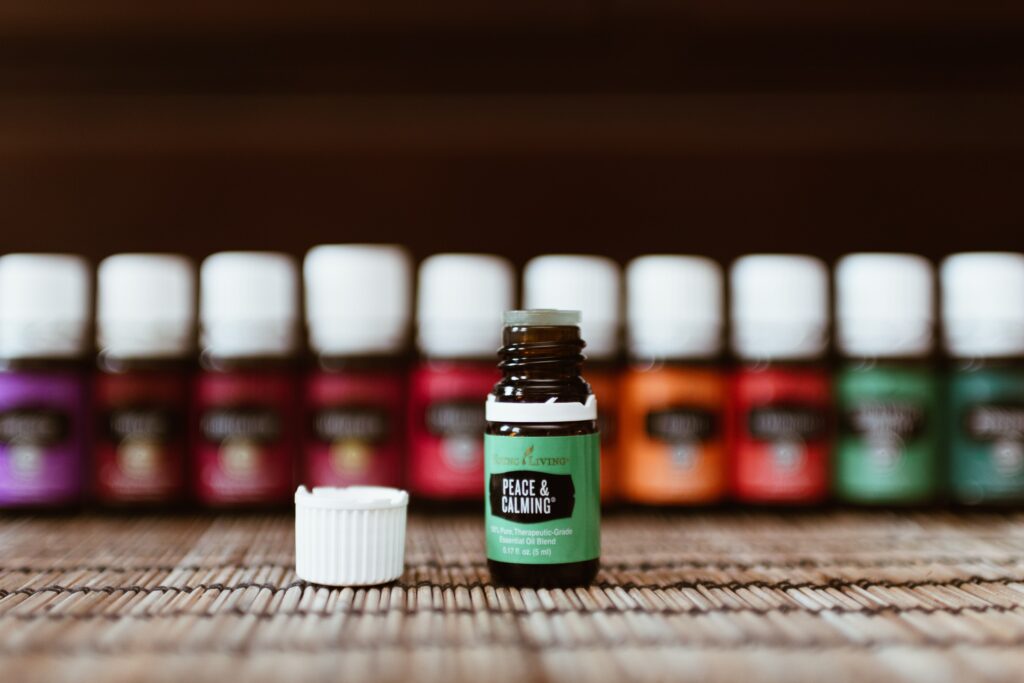As an Amazon Associate, I earn from qualifying purchases

Cleansing Balm and Coconut Oil is a very important ingredients for every skin. Regarding skincare, there are many different products and ingredients to choose from. Two commonly chosen methods for makeup removal and skin cleansing include the use of cleansing balms and coconut oil. We will compare the benefits and drawbacks of these two options to help you make an informed decision.
Cleansing Balm vs Coconut Oil Comparison 2023
First, let’s talk about cleansing balms. Cleansing balms are typically oil-based products that emulsify when they come into contact with water. They are designed to melt away makeup, dirt, and debasement without stripping the skin of its natural oils. Many people find that cleansing balms leave their skin feeling soft and hydrated.
Into the bargain, some cleansing balms contain additional skincare ingredients like antioxidants and vitamins to provide extra nourishment to the skin.
On the contrary, coconut oil is a natural oil that has gained popularity in skincare routines. It is known for its moisturizing properties and ability to remove stubborn makeup. Coconut oil can be applied directly to the skin and massaged in to dissolve makeup and dirt. However, it is important to note that coconut oil can be comedogenic, meaning it has the potential to clog pores and cause breakouts, especially for those with oily or acne-prone skin.
So, how do you choose between cleansing balms and coconut oil? It depends on your skin type and personal preferences. If you have dry or sensitive skin, a cleansing balm may be a better option as it is less likely to irritate. If you have oily or acne-prone skin, you may want to steer clear of coconut oil and opt for a non-comedogenic cleansing balm instead.
What is a Cleansing Balm?

Cleansing balms are popular options for removing makeup and cleansing the skin. Many people find it effective and convenient to apply coconut oil directly to the skin and massage it in. However, it is important to note that coconut oil can be comedogenic, which means it has the potential to clog pores and cause breakouts, especially for those with oily or acne-prone skin.
Cleaning balms are specifically formulated to cleanse the skin and remove makeup. They typically contain a combination of oils and emulsifiers that help to dissolve dirt and impurities on the skin’s surface. Cleansing balms are generally less likely to cause irritation and clog pores compared to coconut oil, making them a better option for those with dry or sensitive skin.
it depends on your skin type and personal preferences. If you have dry or sensitive skin, a cleansing balm may be a better option as it is less likely to irritate. If you have oily or acne-prone skin, you may want to steer clear of coconut oil and opt for a non-comedogenic cleansing balm instead.
Ultimately, it is important to choose a cleanser that works well for your skin type and leaves your skin feeling clean and refreshed.
What exactly is coconut oil?

Coconut oil is a natural oil extracted from the flesh of mature coconuts. It is often used in cooking and baking due to its high smoke point and distinctive flavor. In recent years, coconut oil has gained popularity in the beauty industry for its potential skincare benefits. It is believed to have moisturizing and anti-inflammatory properties that can help to nourish and soothe the skin.
However, it is important to note that coconut oil can be comedogenic, which means it has the potential to clog pores and cause breakouts, especially for those with oily or acne-prone skin. It is also important to keep in mind that not all skin types will react the same way to coconut oil.
Benefits of Using a Cleansing Balm

A cleansing balm is a skincare product that is designed to remove makeup, dirt, and impurities from the skin. It is typically oil-based and is applied to the face and massaged in to dissolve makeup and impurities.
One of the main benefits of using a cleansing balm.
A. Effective at removing even stubborn waterproof makeup without stripping the skin of its natural oils.
B. Especially beneficial for individuals with dry or sensitive skin,
C. Nourishing and hydrating properties.
Many formulations contain ingredients such as shea butter, botanical oils, and antioxidants, which can help moisturize and protect the skin. This can leave the skin feeling soft, smooth, and hydrated after cleansing.
Another advantage of using a cleansing balm is that it can be a time-saving step in your skincare routine. Unlike traditional cleansers, which may require a separate makeup remover and cleanser, a cleansing balm combines both steps into one product.
This can be particularly convenient for those who are looking to streamline their skincare routine or are on the go.
In addition to its cleansing properties, some cleansing balms also offer additional skincare benefits. For example, certain formulations may contain ingredients like exfoliating enzymes or brightening agents to help improve the overall texture and appearance of the skin.
Benefits of Using Coconut Oil

Coconut oil has gained popularity in recent years for its numerous benefits for the skin. It is a natural, versatile ingredient that can be used for cleansing as well.
One advantage of using coconut oil as a cleanser is its ability to effectively remove makeup and dirt from the skin. Its natural oils can dissolve impurities and leave the skin feeling clean and refreshed.
Additionally, coconut oil has moisturizing properties that can help hydrate and nourish the skin. It can penetrate deep into the skin and provide a protective barrier to prevent moisture loss.
This makes it especially beneficial for those with dry or sensitive skin. Coconut oil also contains antimicrobial properties that can help fight against acne-causing bacteria and reduce inflammation. It can soothe and calm irritated skin, making it a great option for those with acne or other skin conditions.
Moreover, coconut oil is rich in antioxidants, which can help protect the skin against free radicals and promote a youthful appearance.
It has the potential to enhance skin elasticity and minimize the visibility of fine lines and wrinkles.
Overall, using coconut oil as a cleansing balm can offer a natural and effective way to cleanse, moisturize, and protect the skin.
How to Choose Between Cleansing Balm and Coconut Oil
When it comes to choosing between a cleansing balm and coconut oil for your skincare routine, there are a few factors to consider.
Firstly, consider your skin type and specific skincare needs. If you have dry or sensitive skin, coconut oil may be a better option for you as it has moisturizing properties and can help hydrate and nourish the skin.
On the other hand, if you have oily or acne-prone skin, a cleansing balm that is specifically formulated for your skin type may be more beneficial as it can help balance oil production and remove excess sebum.
Secondly, consider the ingredients and formulation of the product. Cleansing balms often contain a blend of oils and emulsifiers that help remove dirt, makeup, and impurities from the skin. They may also contain additional beneficial ingredients, such as antioxidants or soothing agents. Coconut oil, on the other hand, is a single-ingredient product.
Lastly, consider your personal preferences and lifestyle. Some people prefer the simplicity of using a single ingredient like coconut oil, while others enjoy the luxurious texture and experience of using a cleansing balm.
Additionally, consulting with a skincare professional or dermatologist can provide personalized advice and recommendations.
Tips for Using Cleansing Balm and Coconut Oil in Skincare Routine
When using a cleansing balm, it is important to apply it to dry skin and massage it in gently to dissolve makeup and impurities. You can then use a warm, damp washcloth to remove the balm and rinse your skin. Some cleansing balms can also be used as a leave-on mask for extra hydration.
When using coconut oil as a cleanser, you can apply a small amount to dry skin and massage it in. Similar to a cleansing balm, you can use a warm washcloth to remove the oil and rinse your skin.
It is important to note that coconut oil can be comedogenic for some individuals, meaning it may clog pores and lead to breakouts. If you have acne-prone or oily skin, it may be best to avoid using coconut oil as a cleanser.
Both cleansing balms and coconut oil can be used in a double cleansing routine, where you first use an oil-based cleanser like coconut oil or a cleansing balm to remove makeup and impurities, followed by a water-based cleanser to thoroughly cleanse the skin.
Possible Side Effects in Cleansing Balm
Cleansing balms are generally safe to use, but like any skincare product, they can have potential side effects for some individuals. It is important to be aware of these possible side effects before incorporating a cleansing balm into your skincare routine.
Some people may experience skin irritation or allergic reactions to certain ingredients in cleansing balms. This can result in redness, itching, or a rash.
If you have sensitive skin or a known allergy to specific ingredients, it is recommended to patch-test the cleansing balm on a small area of your skin before applying it to your entire face.
This can help you determine if you have any adverse reactions to the product.
Additionally, some cleansing balms may contain fragrances or essential oils that can be irritating to certain individuals. If you have fragrance sensitivities or have experienced reactions to essential oils in the past, it may be best to choose a fragrance-free or essential oil-free cleansing balm.
Possible Side Effects of Coconut Oil
Coconut oil has gained popularity in recent years for its numerous health and beauty benefits. However, it’s important to be aware of possible side effects before incorporating it into your skincare routine.
Firstly, coconut oil is highly comedogenic, meaning it can clog pores and potentially lead to breakouts. If you have acne-prone or oily skin, using coconut oil as a cleanser or moisturizer may not be the best option for you.
It’s important to choose products that are non-comedogenic and won’t clog your pores.
Furthermore, certain individuals might experience an allergic reaction to coconut oil. If you have a known allergy to coconut or any other ingredients in coconut oil, it’s best to avoid using it to prevent any adverse reactions.
Final Takeaway: Which is Better for You?
While coconut oil is a popular choice for skincare and cleansing, it’s important to be aware of potential side effects. Some individuals may experience clogged pores, breakouts, or allergic reactions when using coconut oil on their skin. It’s always recommended to patch-test any new product before applying it to your entire face.
Moreover, if you have oily or acne-prone skin, a cleansing balm may be a better option as it is specifically formulated to remove dirt and impurities without clogging pores.
Ultimately, the choice between a cleansing balm and coconut oil depends on your specific skin type and any potential sensitivities or allergies you may have. Seeking advice from a dermatologist or skincare professional is recommended to identify the most suitable option for your specific needs.
As an Amazon Associate, I earn from qualifying purchases
